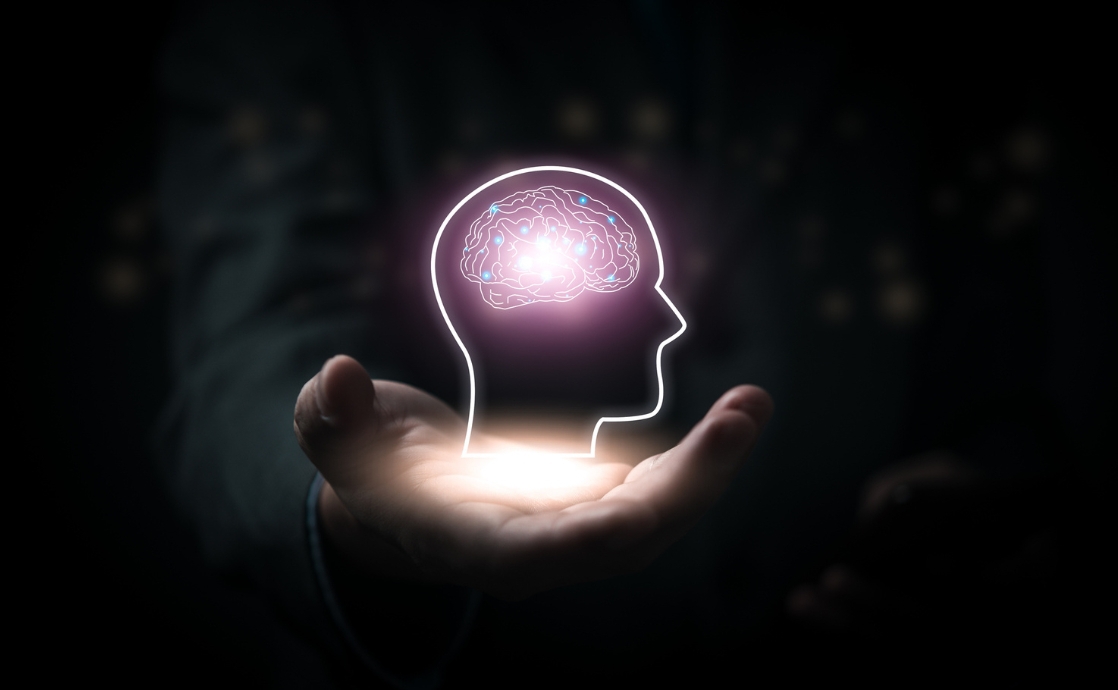The views expressed in our content reflect individual perspectives and do not represent the authoritative views of the Baha'i Faith.
Most of us lack superstar athletic abilities. Few of us have the outward beauty models or movie stars do. Beyond those physical attributes, what do we rely on to get us through life? Well, we have our minds.
We each possess our mental abilities — our intelligence, our reasoning, our acuity, our wits.
We count on those mental attributes to guide us on the rocky road of existence, to cope with the troubles we will inevitably face, to respond to life’s vagaries and challenges.
Without those abilities, we’d be completely lost.
RELATED: Quieting the Mind Through Meditation
So why do so many people mess with their minds? Why do folks use mind-altering substances — drugs, alcohol, pot, tobacco, etc.? Why do so many people want to get high?
I began to wonder about this when I worked in a state mental hospital while I was a university student. One day, we admitted a guy I knew — I’ll call him Sebastian — with a diagnosis of “acute drug intoxication.” A fellow student, a friend of a friend, and someone I’d actually had intelligent conversations with previously, Sebastian had consumed a few too many hits of acid — LSD — and could not function normally.
No, that’s a severe understatement — Sebastian’s mind seemed completely gone. He just sat there. He had no cognition, no sign of awareness, no ability to even form a complete sentence. He couldn’t feed himself, go to the bathroom by himself, or function normally in any way. His high had turned into a deep and perhaps permanent low. The doctors said he might never recover.
During that same period of my life, I had recently come across the Baha’i Faith, whose prophet and founder, Baha’u’llah, wrote: “It is inadmissible that man, who hath been endowed with reason, should consume that which stealeth it away.”
Sebastian’s hospitalization, and the overdose damages and death I started to see on a regular basis where I worked, had made me seriously contemplate why so many members of my generation had turned to drugs. “I’ve seen the needle and the damage done,” Neil Young sang — and I could definitely relate.
Personally, though, I understood at least some of the impulse because I had started drinking at the age of 14 before I ever heard of the Baha’i Faith. Like many teenagers at the time, I craved an escape from the reality of the painful daily drudgery of my dysfunctional life and drinking made me feel temporarily free from anxiety, loose, and happy-go-lucky.
To me, this seemed normal. I grew up in an alcoholic family — Dad drank heavily every day, a victim of untreated PTSD from his World War II experiences as a combat Marine in the Pacific. Seriously wounded more than once, he also killed many, many Japanese soldiers, some in close quarters, hand-to-hand battles, and never recovered from the lifelong impact of that violence. So he drank. Mostly, I think, he used alcohol for its numbing properties so he couldn’t feel the turmoil, pain, and trauma inside.
Mom drank just to keep pace with Dad, or maybe to escape the feelings of inadequacy she inherited from an abusive childhood at the hands of her alcoholic mother.
As you might imagine, intoxicants were a way of life in my family.
But luckily, I was a seeker. Looking for something new and different, I spent much of my adolescence trying to find a more spiritual path. I explored Zen Buddhism, which gave me a sense of calmness and helped me find my spiritual center. I looked deeply into some of the more mystical traditions of the Sufis and the Transcendentalists and the Gnostics, reading everything I could get my hands on, talking to other spiritual seekers, and adopting a very different approach to my inner life than the one I’d been raised in.
Finally, in that quest, I found the Baha’i Faith.
For me, it combined the spiritual sustenance of Buddhism with the most profound aspects and insights of the mystical traditions. The Baha’i teachings inspired me, but they also challenged me, especially when I learned about Baha’u’llah’s advice regarding drinking: “Alcohol consumeth the mind and causeth man to commit acts of absurdity …”
I had to make a choice. Did my drinking really benefit me, or would it ultimately injure me, as it had my parents, whose lives were definitely harmed by their alcohol use? I could see what their drinking had done to them already — both my mother and father, who had been intelligent, perceptive people when they were young, had gradually lost some of their mental abilities. I had never seen either of my parents in a drunken stupor, but the scientific evidence of alcohol’s harmful effects on the brain — each alcoholic drink kills hundreds of brain cells, the research shows — was becoming more and more obvious.
The Baha’i teachings maintain that science and religion must agree, and the explanation for the Baha’i prohibition of drinking given by Abdu’l-Baha, the son and successor of Baha’u’llah, struck me as both scientifically and spiritually true:
The reason for this prohibition is that alcohol leadeth the mind astray and causeth the weakening of the body. If alcohol were beneficial, it would have been brought into the world by the divine creation and not by the effort of man. Whatever is beneficial for man existeth in creation. Now it hath been proved and is established medically and scientifically that liquor is harmful.
RELATED: The Mind, the Soul and the Power of Discovery
After I researched and read the Baha’i teachings on alcohol and all other mind-altering drugs, I struggled with myself. Could I quit? Did the spiritual allure of the Baha’i teachings overpower my desire to get plastered? Could I be metaphorically inebriated with the wine of astonishment, in happier and less injurious ways than regular old wine could produce?
Ultimately, it was an easy decision. I started going to a 12-step program. I talked to my friends. I got some good advice from counselors, physicians, and people I trusted. I stopped drinking and became a Baha’i on my 18th birthday, and I’ve been happily sober ever since.
You May Also Like
Comments

















I do ask for some help in understanding Abdu'l-Baha's argument: "If alcohol were beneficial, it would have been brought into the world by the divine creation and not by the effort of man. Whatever is beneficial for man existeth in creation." I think that alcohol exists in creation since fermentation is a natural process. Regarding that only that which grows shall be consumed, I wonder whether bread is okay since it is made by the effort of man and does not grow by itself.
I would appreciate any insight ...into how to better understand His statement so that I can present it to others if the opportunity arises.
Thank you.
Arie
Regarding bread, it’s important to consider the distinction between the preparation of food (which involves human ...effort) and the consumption of substances that impair health or spiritual clarity.